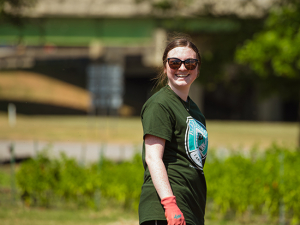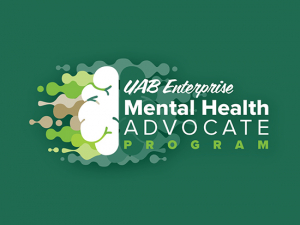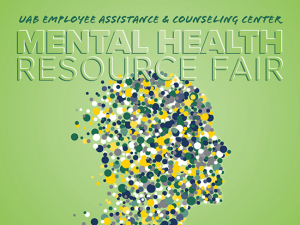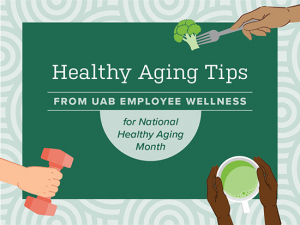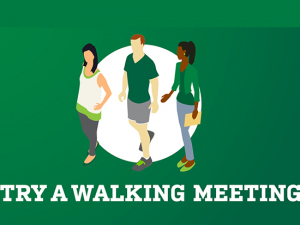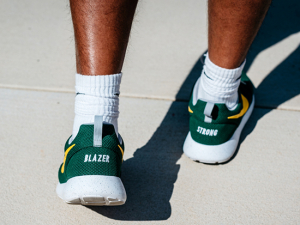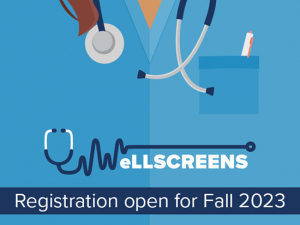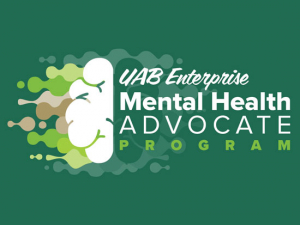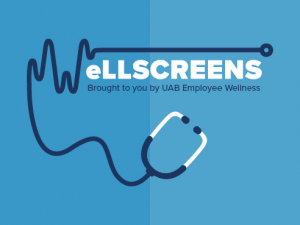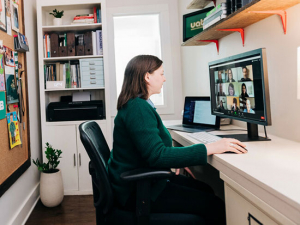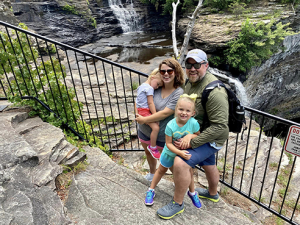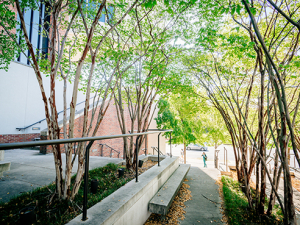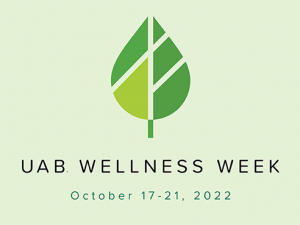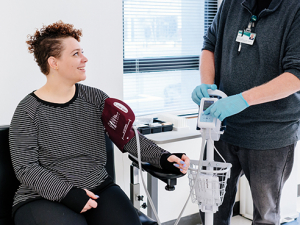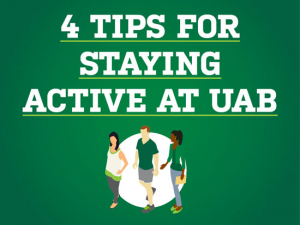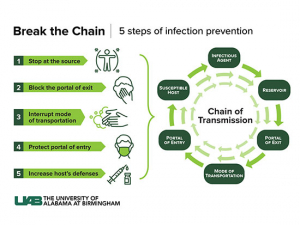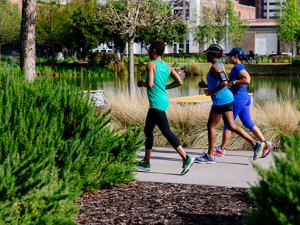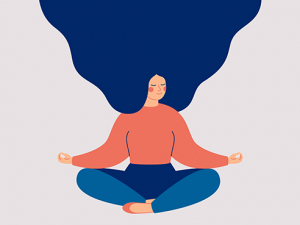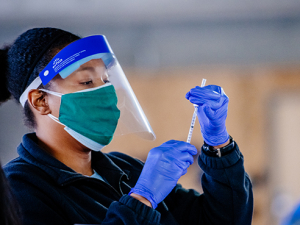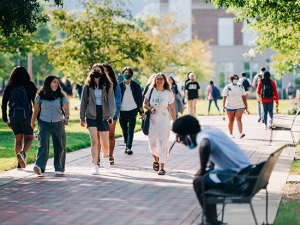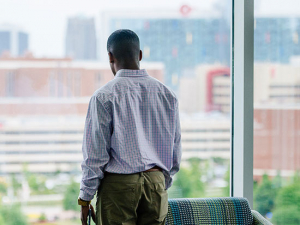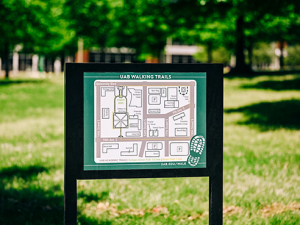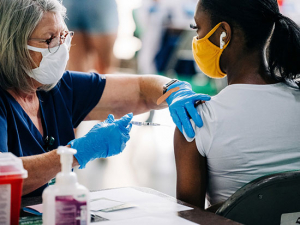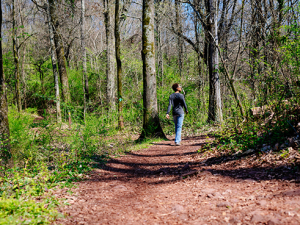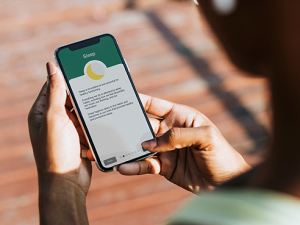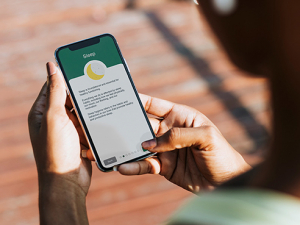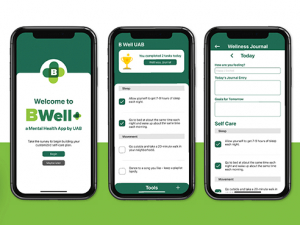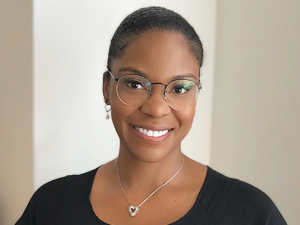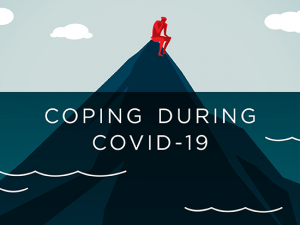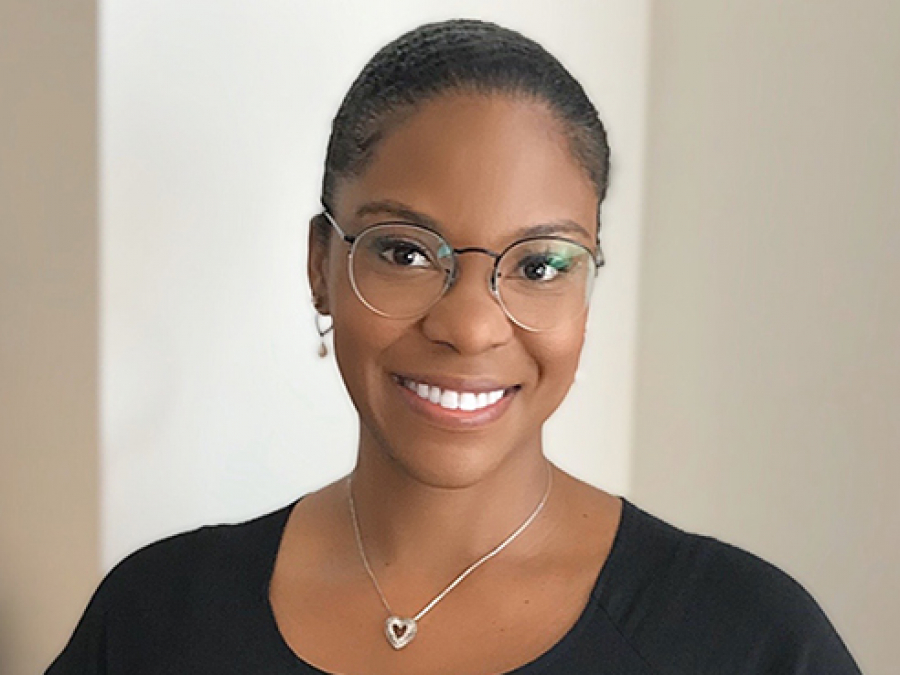 Alicia Booker is UAB's first full-time university ombudsperson. The role of the Ombuds Office is to offer "a safe space when people are faced with a conflict and don't know where to go or how to address it, and aren't sure what their options are," she explained.Think, for a moment, about the most recent conflict you had at work. More particularly, think about the person with whom you were in conflict.
Alicia Booker is UAB's first full-time university ombudsperson. The role of the Ombuds Office is to offer "a safe space when people are faced with a conflict and don't know where to go or how to address it, and aren't sure what their options are," she explained.Think, for a moment, about the most recent conflict you had at work. More particularly, think about the person with whom you were in conflict.
How did they make you feel? Why do you think they acted the way they did? Does your encounter still set your teeth on edge?
Unpacking the 'why'
"When we are experiencing conflict, it is important to pause and unpack the why behind our emotional reactions," said Alicia Booker, UAB's first full-time university ombudsperson, who began her role in April 2020. "Emotions are data. They are trying to tell us something about ourselves and how we interpret others’ behaviors.”
Many of us try to keep unsettling emotions at bay. But “when you can name the emotions you are feeling and name the behavior that bothers you, you have a way to articulate them,” Booker said. “For example, What does respect look like to you? That gives you a way to talk to the person you are having trouble with and say, 'When you say X,' or 'I see you do Y, my meaning making of that is Z.’ And then you can suggest, 'Can you do it this way instead?'"
A safe space
Conflict is a part of life, Booker said. The role of the Ombuds Office is to offer "a safe space when people are faced with a conflict and don't know where to go or how to address it, and aren't sure what their options are," she explained. She adheres to the Code of Ethics and Standards of Practice of the International Ombudsman Association, "which means I am confidential, informal, independent and impartial," Booker said. "I do not keep any records and I keep everything that is said here confidential unless there is a risk of imminent harm to the person or others or if there is a clear violation of state and federal law. In those cases, I will make a report, but I won't do that without the person's knowledge. I'm not an advocate for UAB's position or anyone else's position; I am dedicated to advocating for a fair process or resolution."
This doesn't mean it is always possible to have a "win-win" resolution, she added. "Sometimes I am doing reality-checking. When I say 'fair,' I am basing that on benchmarks from other universities, our policies, our procedures, whether an incident involves one person or it will affect others... If there is a clear policy, for example, I have no magic wand to make it go away. But I can hear about it from your perspective."
Many of her cases "are informally resolved simply with me providing the space to listen," Booker said. "It's that human connection. Many times people just want to confirm that they are not being treated differently. Or they need some help in preparing to have that hard conversation — I help provide them an outline of how to have that conversation and boost their confidence so they can take it on." (See “Conflict coaching,” below.)
Three types of conflict
Conflicts generally fall into three categories, Booker explained: personal, policy or procedure. "What I do as an ombuds is listen to the problem, let the visitor share their perspective and then explain their options, including the existing avenues to address them," Booker said. When people bring her concerns about policies and procedures, she guides them toward UAB's established avenues for addressing these concerns, including the Compliance Office, Human Resources, the appropriate leaders or committees. "I am not a replacement for any other process,” Booker said. “I don't own any process. I don't make decisions, but I can be a sounding board for the people who do make decisions. My role is to track those complaints and see if there is a pattern to concerns about policies or procedures that leaders need to be aware of. What I love about UAB is we have leaders who care and want to do something when problems emerge."
Helping to restore or establish relationships in the midst of conflict is another joy of her job, Booker said. "All behavior is open to interpretation — especially when conflict is present," she said. "And as people, we all interpret things differently. You know your intent and the vast majority of time you probably believe that what you are doing is right. But we tend to villainize the other person involved in that conflict. I really love helping people understand how they are making that interpretation and how they can make meaning out of conflict instead."
Three causes of conflict
“There is consistency in conflict types at every university because there is a dynamic of power and there are no perfect people,” Booker said.
1) Fear
"Fear is the number one reason people don't address conflict," Booker said, so it is important to take this fear head-on. "Are you fearful they are going to know your weakness? That you are going to lose your job? Often when people come to me, they have never spoken about the problem to anyone. I listen for word usage, phrasing and interpretation. I try to get people to say why they haven't spoken up before and then address those reasons."
One of the things that Booker appreciates about her role, she said, is being able to explore options with people who think they have no options and share that there are in fact choices available. "Don't suffer in silence," she said. "I do higher-ed ombuds work precisely because there is an abundance of resources and options available."
2) Friction between styles
"We're often not taught how to have hard conversations," Booker said. "Parents don't usually take their children with them when they are negotiating to buy a new car, for example. So you probably picked up a conflict style that might not really work for you by mimicking behaviors and patterns you have seen, whether that's in real life or in the media." Some people are naturally accommodating; others cope with conflict by avoidance or compromise. Then there are people who see each conflict as a competition with only one winner. Booker can do conflict-style assessments to determine the dynamics involved in a UAB-related conflict and make recommendations for coping with conflicts based on the results.
3) Interpersonal
Positive dynamics are important for any team. But that does not mean that every team has to be made up of buddies. "We are at work to work; we're not here to be friends," Booker said. "We don't have to be friends to work well together, as long as we can collaborate and get the work done. And we can learn to co-exist peacefully and accomplish the missions we have for the benefit of the institution."
Three ways to defuse tension
"I know how much stress and conflict can eat at your health," Booker said. "Our natural behavior when our brain perceives a threat is fight or flight.” But it is possible to develop a mental toolkit to relieve the stress of conflict, Booker said. These tools include:
1) Setting boundaries
"You have to have boundaries to protect yourself," and well-established guidelines and procedures help everyone, Booker said. “It is difficult to be in a relationship with people who have flimsy boundaries or aren't good about communicating what those boundaries are. [Researcher and author] Brené Brown says, 'Being clear is kind,' and that is true for anyone."
2) Creating space
Memorize a few phrases you can use when potential conflict emerges to give yourself time to think through your response, Booker said. "Can we circle back to that” and “Do you need time to process this new information?" are two of her favorites.
3) Separate people from problems
No one comes to work alone. Everyone brings with them the issues that are part of their lives — sick children, financial stress, caregiving dilemmas. Booker often helps groups and individuals unpack the responsibilities that are weighing them down at the moment.
"Everyone has something going on in their lives that can serve as a distraction at work,” Booker said. “That's why things can pop up between us and emerge as a problem. One thing COVID has done, though, is make everyone aware that we are all carrying individual burdens. There is a shared sense of the weight that we are bearing together.”
Conflict coaching
One of the services that the Ombuds Office offers is conflict coaching. "I can give you tips and tools and resources" to use in stressful situations, Booker said. "You can say, 'I'm about to have a hard conversation, I’m negotiating a new contract.’ Maybe you know you have a tendency to ramble. I can help you keep your message short, sweet and to the point and help you see how you are perceived by others. I can also give you tools to help calm yourself in the meeting. What makes me different from a counselor is I deal with interpersonal conflict. I help you process and plan the meeting. I can't go to the meeting myself, but I can help you be confident when you address conflict."
Booker will often use role playing to get visitors "comfortable with conflict, comfortable with having difficult conversations," she explained. "I will say, 'Let's act it out. How will you sit? What are you going to say?' I will coach you on how not to be reactive or get emotionally involved so you are presenting your best self."
Collaboration and community
"Collaboration really is the key to community,” Booker said. “We cannot survive without each other. We all have the power for collective joy or collective pain. Every conflict is an opportunity to reflect and to translate the meaning and be forward-facing.”
